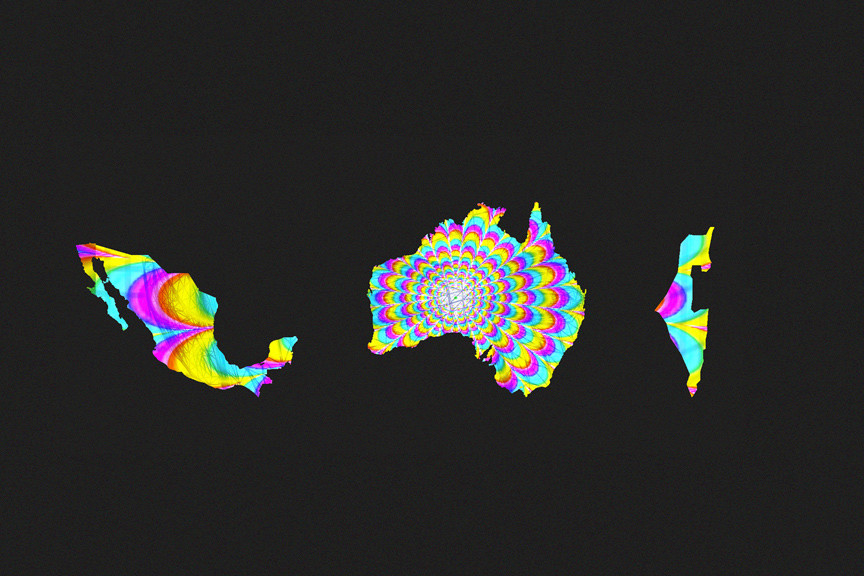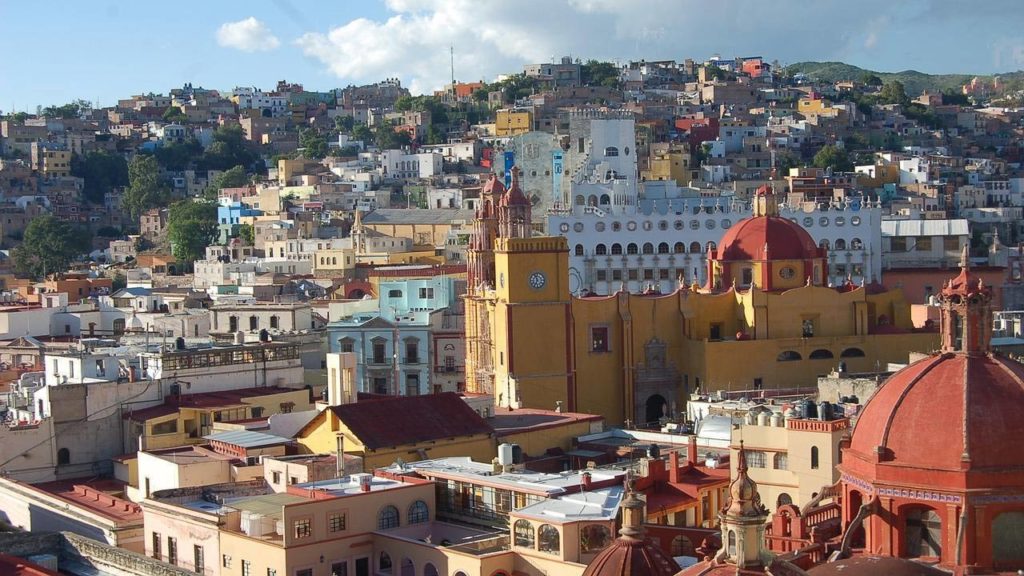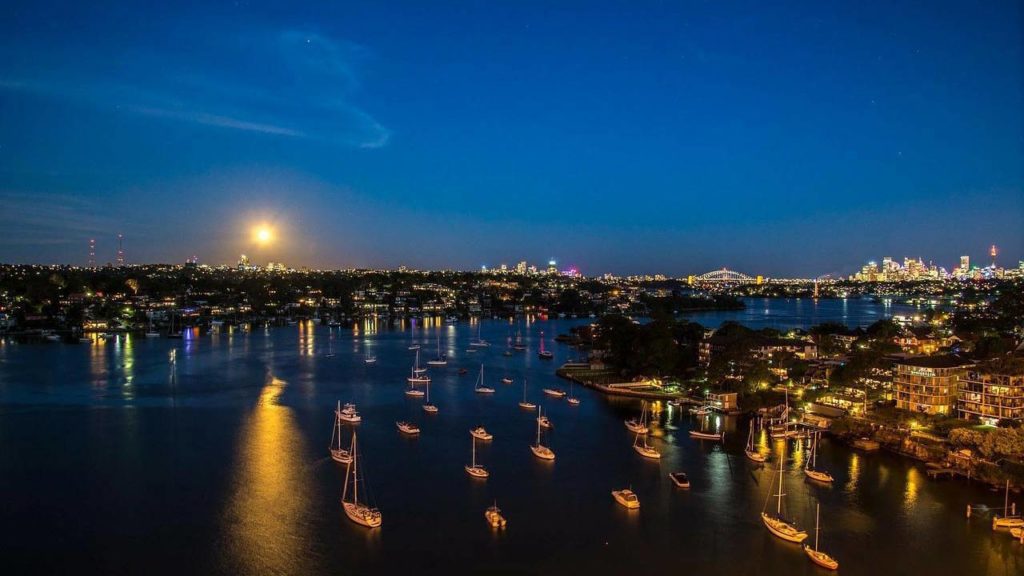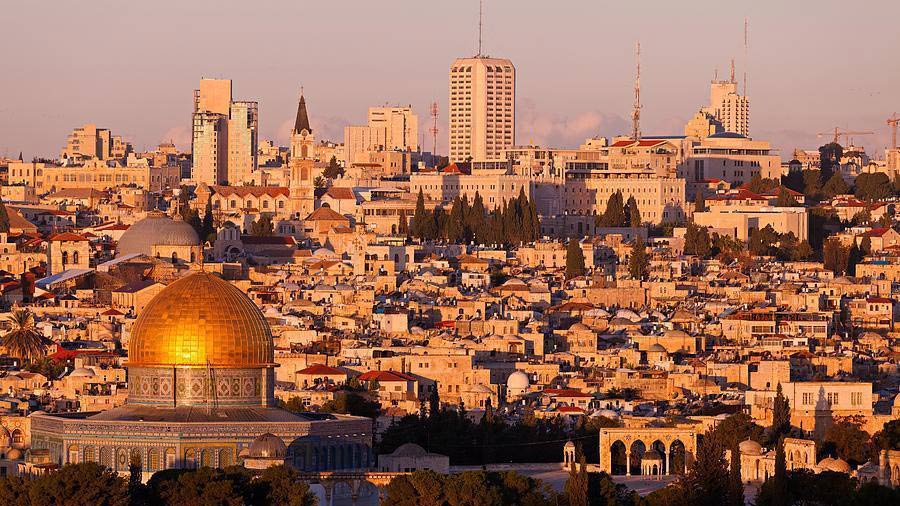The Psychedelic Network, Pt 3: Mexico, Australia, and Israel
“Never doubt that a small group of thoughtful, committed citizens can change the world; indeed, it’s the only thing that ever has.” – Margaret Mead

Psymposia is a 501(c)(3) nonprofit research and media organization that offers critical perspectives on drugs, politics, and culture. We rely on contributions from our readers and listeners. Your support is vital to sustaining Psymposia.
Support Psymposia’s independent journalism on Patreon and help us drive the Mystery Machine! We’re a bunch of meddling kids who are unmasking the latest shenanigans on the psychedelics beat.
The Psychedelic Network is a 3-part series looking at the phenomenon of “psychedelic societies” around the globe. Read part one and part two.
Mexico
Brun Gonzalez is here to enlighten us on the flourishing psychedelic community that exists in Mexico.
Somehow, the man finds the time to be tirelessly involved in fourteen different drug-related organizations, including Espolea, ReverdeSer, Nierika, Mind Surf, and the International Network For People Who Use Drugs—and, of course, he recently founded The Psychedelic Society of Mexico to serve as a platform to bridge these groups together and provide visibility and communication between them.

“In Mexico we are very fortunate and blessed to have a lot of psychoactive plants. It’s one of the most diverse geographical areas of the world, so biodiversity is exuberant and awesome.
On top of that, and maybe because of that as well, the historic interaction with these plants and compounds through ritualistic traditional models is also very close to the broad Mexican population, especially amongst indigenous communities, but this also goes to the more urban and globalized places like Mexico City and other big cities.
Also, the fact that Mexico is the entry point for lots of things in both ways, from Latin America and the deep Amazonian and Andean culture into the United States and the north, and the more Western modern globalized culture from the north down, really means that we get the best (and definitely the worst as well) of both worlds.
So we have all the medicines of the south coming into Mexico and helping to increase this traditional and ceremonial approach to psychedelics, a phenomenon that here is totally related as well to this cultural heritage of the use of Híkuri/Peyote and Mushrooms that are not so foreign to our everyday life, even in the cities. But we also have the new psychoactive substances and research chemicals that you can see in, let’s say, the UK.
I would feel my mission as this intention of helping to aim for a more sustainable, harmonic, liberating, peaceful, and more luminous collective paradigm that integrates the feeling of interconnectedness and symbiotic components of our presence on this plane that many psychedelic experiences seem to provide (and have been doing so since before we were humans.)
Psychedelics allow us to go beyond our own limitations, they provide a broader understanding, and they are tools to explore and connect with the Great Mystery and Source/Spirit.
They’re really fun as well, and fun is so important.
The future will be awesome if we can strengthen and continue weaving the networks of networks so that our efforts are synergic and interconnected, just as information and Spirit [should be]. I think that this kind of vision or goal wouldn’t be so close to us without the psychedelics’ influence.
I firmly believe we should strive towards using them and making use of these properties as tools for individual development, spiritual growth, and social transformation.”
Australia
Nick Wallis is here to enlighten us on the state of the psychedelic scene in Australia. He is the producer of a weekly radio show and podcast, Enpsychedelia, which is a platform for Melbourne’s psychedelic culture that focuses on the controversial crossroads of psychoactive mind-states and society. He also very recently started the Australian Psychedelic Society, which will officially launch at Rainbow Serpent Festival on January 27th.

“Though Australia is a large land mass with people spread over vast distances, it seems we have a relatively small psychedelic scene, where just about everyone knows everyone.
Australia is unique in many ways. It seems that there is a global psychedelic culture which is reflected in similar, yet slightly different ways in places across the world, especially through the festival scene. Each country adds its own unique flavour to this global culture. Australia’s bush doof culture has grown and grown over the decades from all-night parties into vibrant psychedelic temporary townships and a whole myriad of ongoing cultural operations.
The small population size of Australia and distance from Europe and North America do mean that our resources are often more limited for seeing bigger projects come to fruition. But the scene and culture continue to grow and mature, especially in these times of increased global connectivity. There is a growing number of people dedicated to growing and nurturing the psychedelic community, especially those from academic pursuits.
These are tools not just for the sick, but for teaching our minds to know the malleable nature of reality, especially with regard to the emotional worlds that exist in our shared mind’s eye.
My dream is that we will see the growth of a globally connected psychedelic community, which is focused not just on healing those with medical ailments, but on helping to nurture the lessons learned through psychedelic exploration.
I hope that psychedelics do not end up as merely another tool in the arsenal of Western medicine, nor a sacrament for a very specific religious ceremony. My hope is that psychedelic exploration can be fostered in a manner that fundamentally understands the ineffable, rather than trying to explain it through one institution or another.
Technology is moving at a quickening pace, while still we struggle with political, economic, and social issues that pop up time and time again. Psychedelics may be the doorway through which we can start to better grasp our place in this world and what we are, so that we can shake off the imaginary worlds that too often guide us to conflict and start to re-ground ourselves in this wholly reality (wholly intended to be spelled that way).”
Israel
Amid all the war and conflict in the Middle East, Israelis are all too aware that life is short and tomorrow is uncertain. Naturally, people here celebrate the moment and tend to party pretty hard.
Ido Hartogsohn, who currently lives in Jerusalem, runs an Israeli psychedelic magazine called LaPsychonaut, arranges screenings of psychedelic videos from his website dailypsychedelicvideo.com, and gives lectures on the topic of psychedelics around Israel. He has written extensively on the topic, including a book entitled “Technomystica: Consciousness in the Age of Technology,” which presented the Hebrew reader, for the first time, with the works of psychedelic thinkers such as Huxley, Leary, and McKenna and attracted much attention and praise in Israeli media.

While there isn’t an official Psychedelic Society of Israel yet, the man has a lot of knowledge about the psychedelic community in his home country.
“The Israeli psychedelic community is steadily growing, with more and more events being produced, an expanding knowledge base and a growing sense of identity.
In contrast to many other countries, many of the people who take psychedelics in Israel are not part of the well-off white intelligentsia, but rather come from lower socio-economical strata of society. As somebody who volunteers in an Israeli psychedelic support service which provides psychedelic care in local psytrance festivals, which attract diverse groups from Israeli society, I get to encounter this side of the psychedelic scene.
At the same time, it is also very much a phenomenon which attracts a lot of educated young people and spiritually-oriented individuals. There is a lot of interest in medicine ceremonies, and people are excited to learn more about sacred plants and about contributing to the growing scene of psychedelic research.
I am constantly amazed by the enthusiastic response and the level of interest these topics produce in the Israeli public. I am currently also working on setting up a first Israeli conference on the topic of psychedelics, but this project is still in early stages.
Psytrance is very strong in Israel, and has been for many years. In that sense the Israeli community is very connected with the European tribe and the central role of psytrance festivals in the European psychedelic scene. At the same time, in recent years there also exists a growing Burner community, so American-style psychedelia is also part of the discourse.
Lots of Israelis find out about psychedelics during their military service or shortly thereafter, during their coming of age trip to the Far East, or Central America. Young people often use psychedelics for hedonic purposes, but these agents can also trigger some powerful processes and transformations in people who just exited (or are still inside) a highly authoritative military system, leading many on a path of search and rediscovery.
With more and more psychedelic research getting prominent and favorable media attention and increasing global interest in drug policy reform, there is a growing sense that something is genuinely changing and that this is a developing and exciting field to get involved in. The internet has certainly done a lot for the psychedelic community, in allowing people to connect, exchange information and grow as a group.
A lot of people expect that the growing recognition of the therapeutic benefits of psychedelics, the anticipated approval of MDMA and psilocybin as Schedule II drugs, in conjunction with a global move towards cannabis legalization/decriminalization, will lead to a new era for integration of psychedelics in society. I believe public opinion and culture have definitely grown more open and receptive to the psychedelic message since the 1960s.
Nevertheless, psychedelics have traditionally been a marginal technology, operating on the boundaries of society and culture, not just in our own western world, so I suspect that their re-integration to present-day society and culture would continue to be far from a simple and straightforward process despite everything.”
Conclusions
As the internet continues to dismantle the boundaries of space and time in this new and exciting era of humankind, the imaginary lines of countries and nations will increasingly blur.
Never before have we been able to assemble so many people all over the globe to work together on advancing shared interests and goals. This allows a really beautiful thing to happen: People begin to transcend identification with any single country, and instead identify with their passions.
It no longer matters much where you were born or raised. For example, I wrote this article in Tel Aviv, for this organization based in Baltimore, and have gathered information from individuals all over the globe, so that you (wherever you are) can learn from it. Now that is pretty damn trippy when you think about it.
One might begin to think that as the world becomes more globalized, individuals will become less important. But actually, the exact opposite happens.
Just take a look at the individuals we spoke to in this piece. They’re just normal people, no different from you or me. But they used this incredible new technology we have at our fingertips, and created psychedelic communities around the world that are now vibrant and thriving.
In fact, during these interviews, one person continually was named again and again as each person’s biggest inspiration: Rick Doblin, the founder and director of MAPS. He is just one individual, but he has changed the lives of so many people all over the world. He doesn’t have superpowers…he is just passionate and committed to his cause.
Daniel Jabbour also catalyzed a lot of these psychedelic societies to form when he published his article on MAPS with a call to action urging people to start their own groups.
A quote from one of my favorite anthropologists, Margaret Mead, comes to mind:
“Never doubt that a small group of thoughtful, committed citizens can change the world; indeed, it’s the only thing that ever has.”
The individuals highlighted in this piece, through their tireless passion and dedication to standing up for what they believe in, are literally changing the world every single day. If you feel inspired by this, I urge you to join your local psychedelic society and contribute in your own way (and join the Global Psychedelic Network online). Or, if one doesn’t exist yet in your area, form one. It’s really that simple. We have the tools and the power in our hands.
Graham Hancock sums this concept up perfectly: “I am convinced that the way forward for the human race is to recognize and protect the fundamental right of sovereignty over consciousness, to throw off the chains of our divisive religious heritage, to seek out forms of spirituality (or no spirituality at all if we so prefer) that are truly supportive of liberty and tolerance, to help the human spirit to grow rather than to wither, and to nurture our innate capacity for love and mutual respect. The old ways are broken and bankrupt, and new ways are struggling to be born. Each one of us with our own talents, and by our own choices, has a part to play in that process.”
Hey! Before you go… Psymposia is a 501(c)(3) non-profit media organization that offers critical perspectives on drugs, politics, and culture. We strive to ask challenging questions, and we’re committed to independent reporting, critical analysis, and holding those who wield power accountable.
Our perspectives are informed by critical analysis of the systemic crises of capitalism that have directly contributed to the unmitigated growth of addiction, depression, suicide, and the unraveling of our social relations. The same economic elite and powerful corporate interests who have profited from causing these problems are now proposing “solutions”—solutions which both line their pockets and mask the necessity of structural change.
In order for us to keep unpacking these issues and informing our audience, we need your continuing support. You can sustain Psymposia by becoming a supporter for as little as $2 a month.
Zoë Biehl
Zoë is a full-time writer and editor, holds a BA in anthropology and sociology, and spends her free time petting all the street cats in Tel Aviv.





